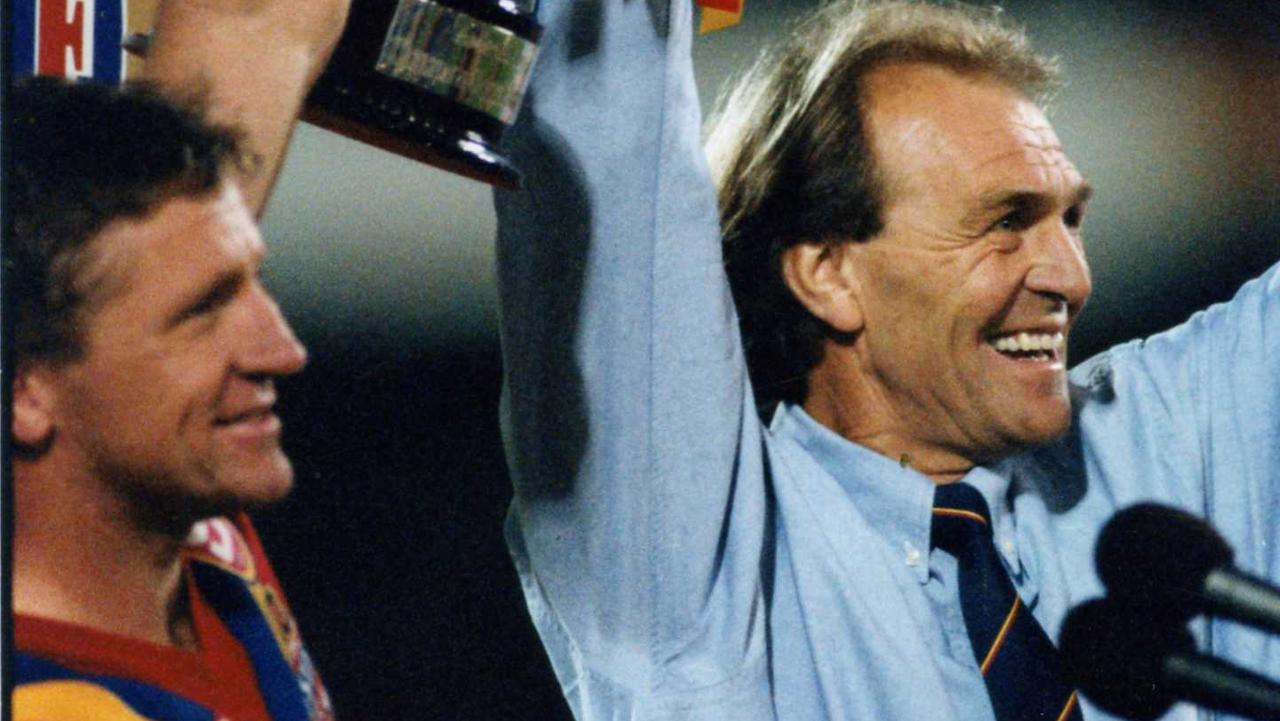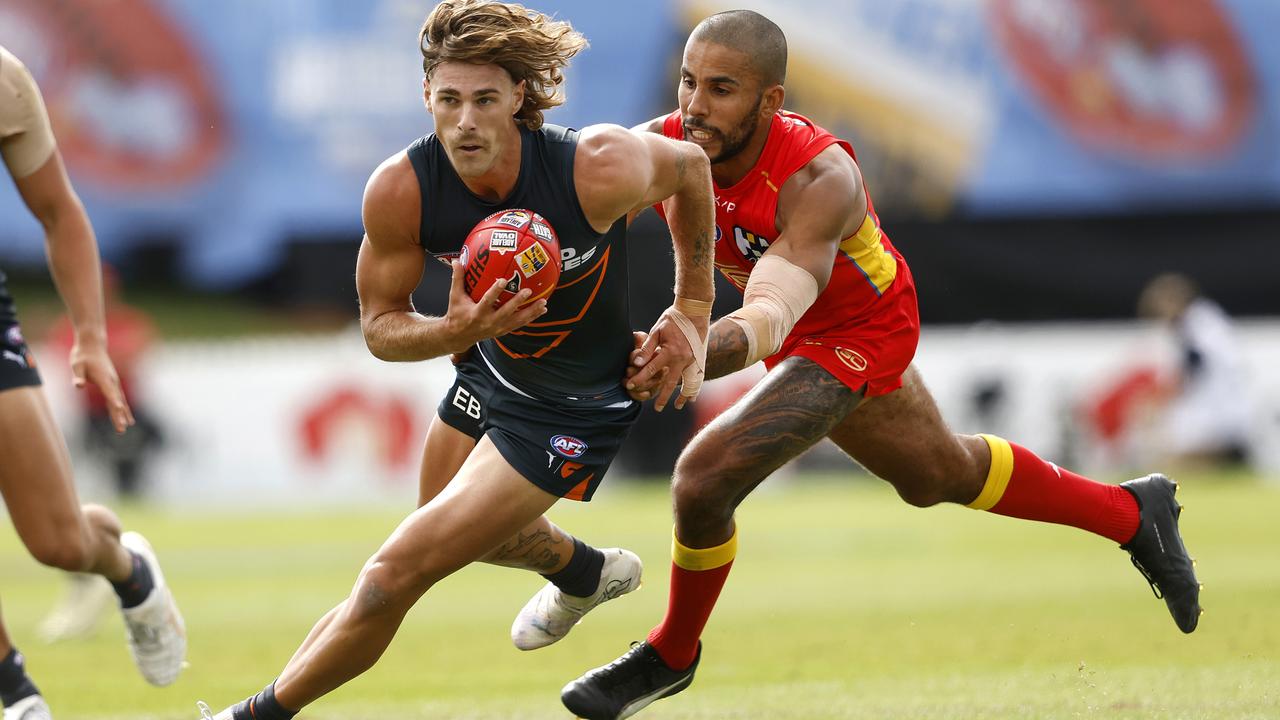When the star players of the AFL refuse to front the media, it’s the members and fans who lose out
IF being held to account and taking questions after every win or loss is good enough for LeBron James, the stars of the AFL should do the same, says Dwayne Russell
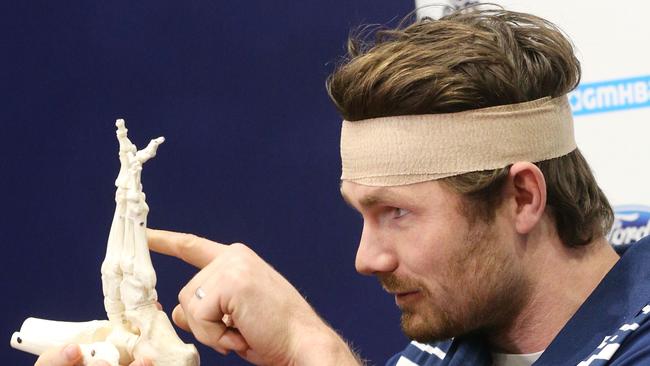
Expert Opinion
Don't miss out on the headlines from Expert Opinion. Followed categories will be added to My News.
- Buddy cleared over diving incident
- 70 players linked to concussion case
- Why content is king for Thursday night footy
- Cornes: Crows’ woes about injury, not division
- von Bertouch: Has netball found fix for AFL’s tanking problem?
DUSTIN Martin, Lance Franklin and Gary Ablett have a few things in common. They are all superstars of our modern game. And they don’t do press conferences. They are not obliged to.
They either elect to stay silent or are hidden from any weekly open media inquisition, by both their clubs and their players’ association.
To be fair on those three megastars, no AFL player is obliged to face questions in open media conferences. So why should they? Yes, it would add some colour, inject some stories and add weighted opinions to day-to-day football issues.
But ridiculously, promoting and reviewing the game in an open forum is currently not seen as their job, unlike other sport superstars such as Roger Federer, LeBron James and Serena Williams, who take press conference questions and are accountable after every performance.
And the clubs themselves are not keen for change, because they want to control which stories emanate from their men. And clubs are also in direct competition with the media for exclusive content.
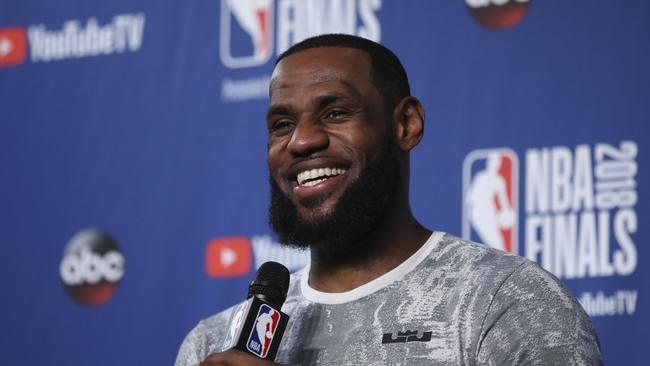
Every club needs clicks for its own website. Why give a story to a newspaper, when a club can stage-manage a carefully questioned interview and release that propaganda?
We are being fed such a restricted ration of vanilla, that it is sadly coming back to haunt those players who elect to inject some flavour. Patrick Dangerfield is one star who shows the fans and media some personality.
But earlier this year, premiership coach Robert Walls smashed Dangerfield for dressing up and fake-hobbling to a press conference he specifically called to try to dispel injury rumours and add some pre-game pizzazz to his clash with his old team.
“It was a little bit too much about ME and not the team” Walls said.
Dangerfield has wound back his media appearances since. Why put your head up and be honest about injuries and promote a game when it’s only going to be lopped off by people who, sadly, just don’t get it?
Richmond coach Damien Hardwick bemoaned the “tall poppy syndrome” after media dined out on the Alex Rance dive for a week. “We’re always trying to bring a champion down,” Hardwick said.
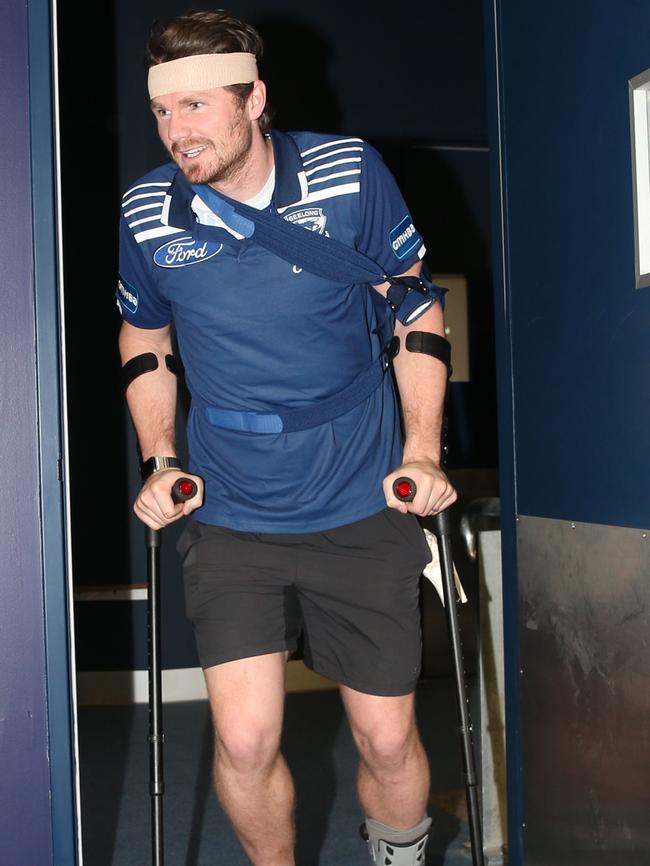
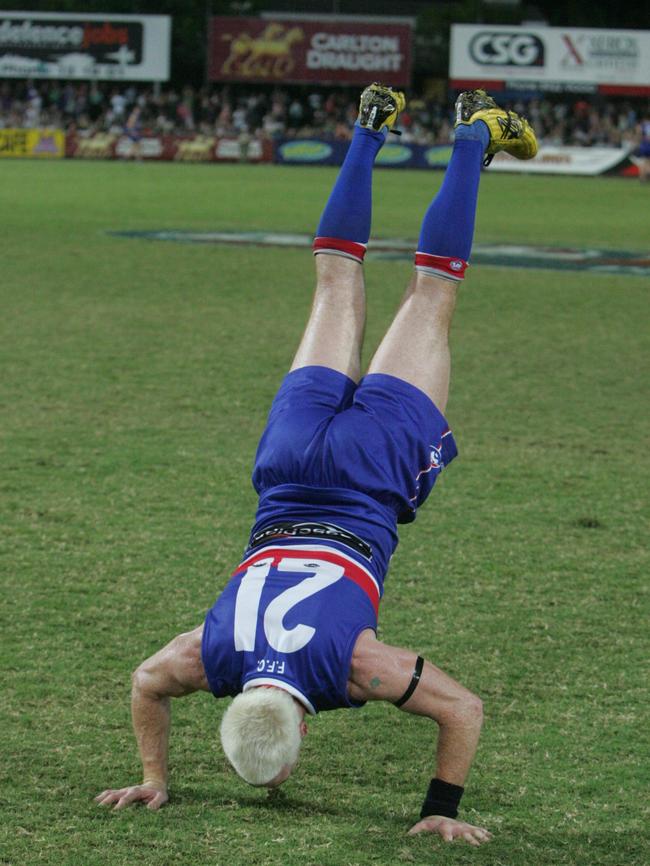
It’s not tall poppy syndrome, it’s vanilla starvation syndrome. There are so many footy-based talkback radio shows, television shows and newspapers to fill, and so few colourful stories to feast on, that when one comes around, it is drained of every last drop of blood.
We don’t have guys kicking a dozen goals in a game any more, or exciting one-on-one battles, or towering Modra-like marks to talk about. And nor do we have anywhere near enough personalities. It’s actually embarrassing that some clubs employ media experts to teach their players how to be vanilla.
Clubs now recruit kids with flair and immediately bring in Nurse Ratched to turn them into conformist, emotionless robots. Don’t dare show any personality or give a back-page headline. Or over-celebrate a goal. Or tweet a controversial opinion. Or go down what former Kangaroo coach Denis Pagan sadly demonised as “media street”. It’s too much of a distraction.
The first thing the Bulldogs did when Jason Akermanis came to the club from Brisbane was stop him from doing his trademark post-game handstand. They took away his individuality.
Yes, the biggest AFL drawcards do the occasional two-question post-match chat with Channel 7 or Fox Footy. But that’s their contractual commitment satisfied. It needs to change.
Not everything done in American sport should be done by us. But every NBA player must take open questions from the media after a game.
Perhaps LeBron is a bad analogy, because he’s got the brains and the balls and the thick skin to handle anything that comes his way.
But as the biggest name in his sport, he doesn’t just accept that promoting and reviewing games is part of his job. He sees it as an obligation to the fans to give them a real person to respect and idolise, rather than an opinionless, distant, elite millionaire.

